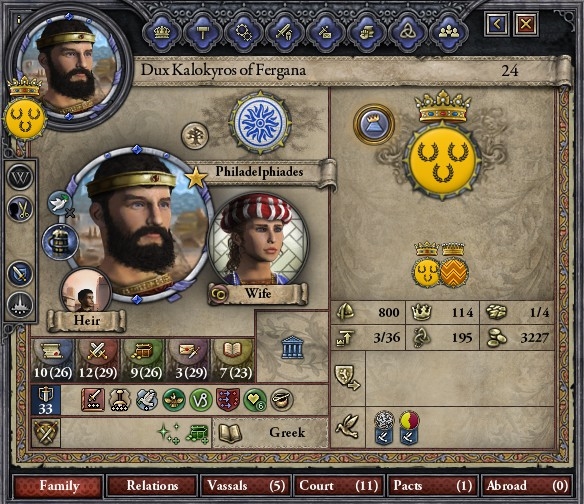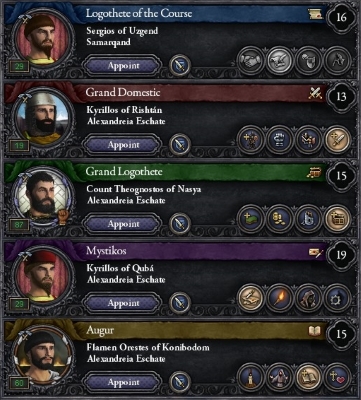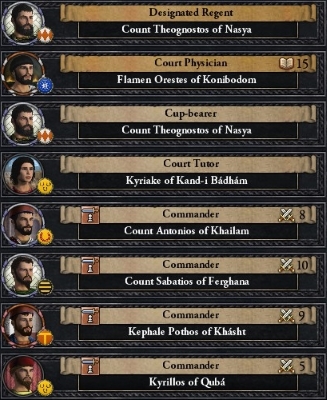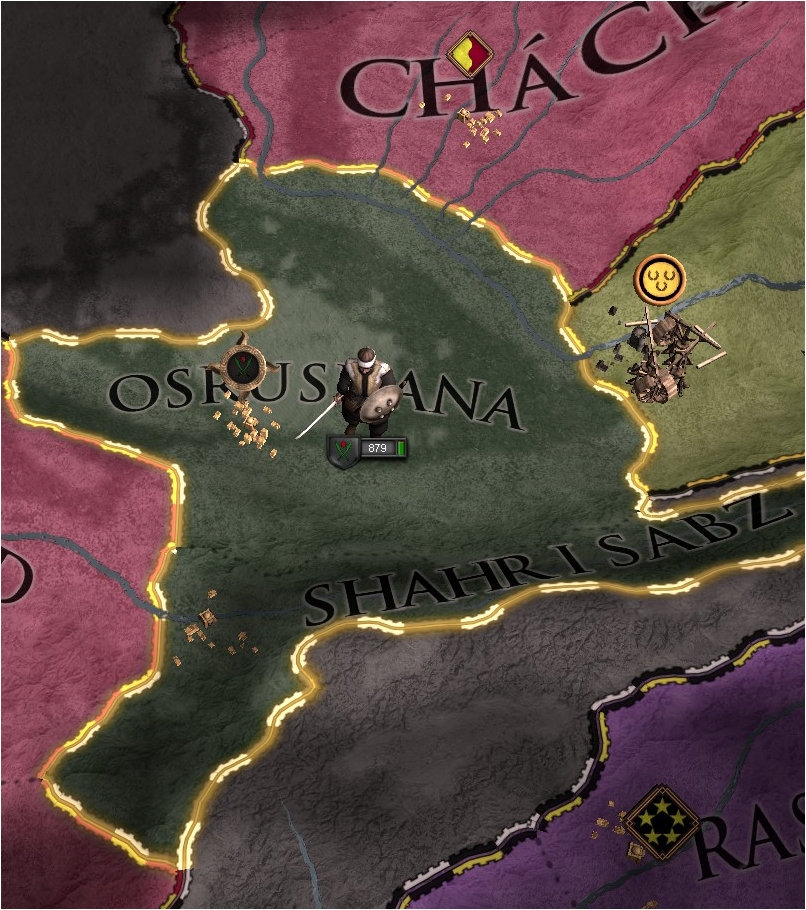Table of Contents/Introduction

‡‡‡‡‡‡‡‡‡‡‡‡‡‡‡‡‡‡‡‡‡‡‡‡‡‡‡
TABLE of CONTENTS
‡‡‡‡‡‡‡‡‡‡‡‡‡‡‡‡‡‡‡‡‡‡‡‡‡‡‡
BOOK ONE — THE FAR SIDE OF THE WORLD
- Introduction (This Post)
- Chapter I — the Stranger from the West
- Chapter II — Precarious Peace
- Chapter III — Theology and Throatcutting
- Chapter IV — Domestic Bliss
‡‡‡‡‡‡‡‡‡‡‡‡‡‡‡‡‡‡‡‡‡‡‡‡‡‡‡
INTRODUCTION
‡‡‡‡‡‡‡‡‡‡‡‡‡‡‡‡‡‡‡‡‡‡‡‡‡‡‡
INTRODUCTION
‡‡‡‡‡‡‡‡‡‡‡‡‡‡‡‡‡‡‡‡‡‡‡‡‡‡‡
It was at the end of the Summer in 329 BC that the war-weary army of King Alexander III of Macedon made their camp on the southern bank of the Jaxartes river in the land of Sogdiana. As hard as those brave soldiers of Alexander fought to subjugate the Sogdians, they themselves fought with the same veracity and unending tenacity against their conquerors to preserve the freedom to which they had grown so accustomed. For the many wounded and many more whose term of service to their King had simply expired, a settlement was proclaimed at the site of the camp as a place for the wounded to convalesce and for the retired to lay down their roots.
Alexander's army constructed a wall around the site of the settlement at his behest — a great curtain some six kilometres in length to defend the young city from the recalcitrant Sogdian tribes of the surrounding area. Within twenty days, or so the story goes, the wall was completed, and the first of the settlers began to stake their homes within. The city, like many before and many after, would be named after the Macedonian King himself: Alexandria Eschate — "Alexandria the Farthest".
After the untimely death of the young King Alexander III — aptly named Alexander the Great by historians and laymen alike in the wake of his legendary deeds — the Macedonian Empire, which stretched from Illyria to India, was partitioned among his generals. Alexandria Eschate fell under the eventual dominion of Seleucus I "Nicator". The fertile lands of the Fergana Valley above the city attracted further settlement from military retirees, and many Greeks who had been forcibly resettled by the late Achaemenid administration came to make a home for themselves among their countrymen as well. When the Bactrian Satrap Diodotus proclaimed his independence from the Empire of Seleucus's successors, with him went Alexandria Eschate once again, enjoying over fifteen decades of benevolent and rightly-counseled rule by three dynasties of Hellenic kings.
After the fall of the Greek Dynasties of Bactria at the hands of the Tocharoi, the trail of Alexandria Eschate's history runs cold. Though the Roman writer Curtius claims to have known that the land was still Greek-speaking in his time, and though the Han Dynasty of the land of Serica claims to have subjugated a white-skinned people with profuse beards and a taste for wine in their War for the Heavenly Horses, it would seem that the Greeks of Alexandria Eschate simply vanished from the world's sight.
Some ten centuries after the Fall of Bactria, the world had become an entirely different place. Where once many Gods and Goddesses were worshipped by many tribes, now the lands of Europe worshipped one single God in their place. Where once the teachings of Zarathustra were held sacrosanct, the sermons of Muhammad were taught instead. And where once a handful of Greek city-states jostled one another for political dominance over their peers, a single, unified Empire lay straddling two continents. Here is where our story will begin, with a curious soul named Pothos.

Pothos, like the Great King Alexander III of antiquity, was a Greek; beyond this shared quality, the two could not be more dissimilar. Where Alexander the Great was a formidable commander, Pothos was hardly able to handle a simple sword without injuring himself in some fashion. Where Alexander was driven by the promise of glory and eternal fame, Pothos's quest was fueled by nothing more than a whimsical curiosity. Where Alexander was followed by an army of thousands, Pothos travelled alone as an army of but one.
Armed with only a sword and a rumour to guide him, Pothos left his native Thessalonica in the Christian year of 865. There was rumoured to be a time in antiquity when a traveller, by means of the Royal Roads of the Achaemenids, could go from Ionia to Sousiane in just 90 days, and from there to the edge of India in just ninety more; in the turbulent times in which Pothos lived, pitfalls and obstacles abounded as he crossed the storied lands of Media, Parthia, and Bactria. Moving on the advice of locals by employing what little Persian he knew and could pick up along the way, Pothos meandered eastward across the Iranian plateau for two years, before finally reaching the mouth of the Fergana valley, some five-thousand odd kilometres from where his journey had begun two years earlier. By his reckoning, it was the eleventh of April, 867 AD.
I could not tell you what caused the adventurer Pothos a greater shock — finding a walled city exactly where Alexandria Eschate had been rumoured to be, or hearing the guards at the city gate hail him in a language much like his own. I may not need to say that his arrival came as something of a shock to the guards as well, who allowed him to enter the city only under duress of their arms to present to their liege. The journey through the city's main causeway was not a long one, but the moments passed slowly as he saw the faces begin to gather about him. There was no question — these were Greeks, or most of them were. But the clothing on their backs was neither like the fashion of the Greeks in Europe and Asia Minor, nor was it like that of antiquity, or at least how Pothos had imagined it. Indeed, with their fur hats, folded qaftans, and long braids, they looked much more like Pechenegs or Khazars than they did Greeks.
At last he entered the palace; it was modest compared to those he had seen Rome and Persia, but in its modesty it held a certain charm. He was brought into a small throne room where his escorts ordered him to halt and wait while one from among them went to fetch his superior. Within a few minutes, a curly-haired, bearded man appeared before him, dressed something akin to a Sasanian satrap. His fingers were adorned with simple gold rings — far from the garish accoutrements of even the lowest of nobles in the Roman Empire. With a polite smile, the man asked:
"With whom do I have the pleasure of speaking?"
His Greek sounded a bit off; it came across as out of fashion and archaic to Pothos's ears. "With all respects due, my gracious host, my name is Pothos. I'm a Roman traveller from the west, in search of the famed colony of Alexander the Great in the Land of Sogdia." Pothos shifted his weight to his other leg, lowered his head slightly, and asked: "May I be so bold to ask my gracious host of his own identity?"
"It is my pleasure," replied the ring-bearing man. "That which you have sought, you have found, and I — Kalokyros Philadelphiades — am its King."
Last edited:








